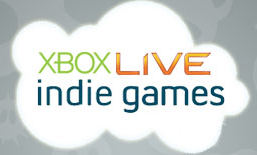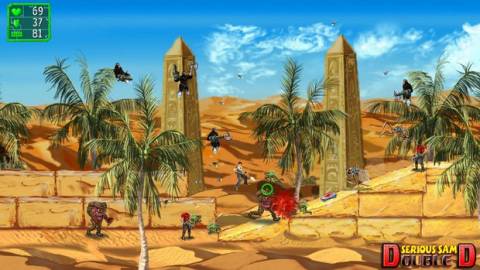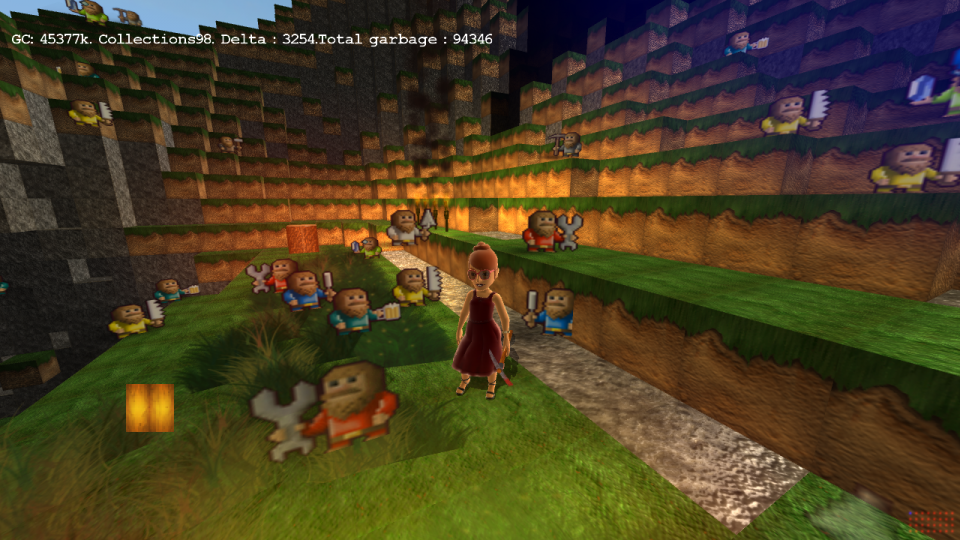
Earlier this week, Microsoft updated its Xbox Live Indie Games program to hand control over the release date to developers. No, that feature did not exist before. And no, Microsoft did not inform independent developers who were creating and publishing games for the platform that it was coming before the announcement.
Such information would have been incredibly useful for 25-year-old Jason Wishnov of Iridium Studios, who just launched Sequence on the notoriously underdeveloped service, launched by Microsoft back in November 2008.
"It's a fantastic feature," said Wisnov to me over email, "though [I'm a] bit bitter about its introduction literally four days [after] my game's release. I had a hell of a time coordinating a traditional marketing blitz when I was literally unable to tell people when my game would be available to the public. Without a focused date, all marketing for my game had to be done after release, as a race against the clock; indie games slowly slip from the new releases list within a week, after which their visibility is fairly wounded."
Sequence, an RPG with rhythm game mechanics rooted in Konami's Dance Dance Revolution, has seen less than a thousand sales since its launch earlier this week, despite great reviews. Wishnov was hoping Sequence would be his ticket out of his day job and into full-time game development, a common sentiment among developers publishing in the independent market. No one who releases on Microsoft's platform expects guarantees on success, but the lack of communication is seen as a big and frustrating issue.
== TEASER ==Prior to this change, game developers submitted into a peer review system when the game felt done. Fellow developers then download the game, make sure it's up-to-snuff, rate the content inside for age appropriateness, and following a "sufficient" though undisclosed number of sign-offs, the game is live. The developer has no control over this process. Once the game passes, a few hours go by and the game suddenly appears onto the Indie Games channel. If you're not paying attention, you could just miss it.

This new change allows developers to halt the process at peer approval. If the developer wants the game to stay in the system for a while, providing time to build up a public relations campaign, it can.
Wishnov spent two-and-a-half years developing Sequence. He missed control over his release date by a few days. Had he been aware of the changes that were coming, he might have held the game back.
"The XBLIG [Xbox Live Indie Games] team isn't exactly great at keeping us informed of pending developments," he added.
He's not alone in that sentiment, either.

"It's hilariously disconnected," said designer Nathan Fouts of Mommy's Best Games, best known for Shoot 1UP and the upcoming Serious Sam: Double D. "They have no formal communication with registered developers. At most it's a post on the forums, or a news post on the app hub site. I had no idea the new feature was coming. In the past they say they keep us in the dark so they don't disappoint us. You know what disappoints me more? Getting kept in the dark. C'est la vie!"
Fouts left Insomniac Games to pursue his own games and has been one of the most vocal evangelists--and critics--of Indie Games, praising the opportunities it offers and cursing Microsoft for overlooking it. Fouts has been asking Microsoft to give developers control over the release of their games since Indie Games was called Community Games. Microsoft changed the branding to Indie Games in June 2009.
"If you consider how most games, movies, books, albums will say when the release date is, it allows fans to prepare," added Fouts, whose livelihood is based on selling his wares. "They can juggle what entertainment they'll be purchasing, or just to help them to remember when to look to download things."
There have been bonafide success stories on Indie Games, including James "Dishwasher" Silva of Ska Games, who's sold more than 200,000 copies of the intentionally goofy I Maed a Gam3 W1th Zomb1es. DJArcas, who doesn't disclose his real name, recently broke records with FortressCraft, a controversy-laden riff on Minecraft, selling more than 16,000 copies on its first day of availability.
Until I'd pointed it out, DJArcas wasn't even aware the change had been made.
"Wow, they finally added that?" mused DJArcas, when I brought it up over email. "Amusingly, it doesn't really bother me; it's more indicative of the failure of the system as a whole, the fact that being in the 'new releases' is paramount to sales. It does mean that you can setup your peer review a few weeks ahead of your release date, and have plenty of advertising showing the date of your release."

But while DJArcas might be shrugging his shoulders, Silva expressed frustration over how differently the Indie Games Winter Uprising might have gone last December, intended to be a month-long stream of releases via Indie Games. The promotion, developed separately from Microsoft, was mimicking other promotions of digital games on the service that Microsoft does run, ala Summer of Arcade. Sadly, the Indie Games Winter Uprising rollout was hurt by several issues, including mostly unknowable release dates.
"We basically had this 'the games will most likely come out in winter' approach," said Silva. "If we could get all of the games approved and then publish them on a well-publicized official schedule, it would look tons better."
Alas, it's too late for the Indie Games Winter Uprising.
But Indie Games is not the end for Sequence's Wisnov, as he's preparing to submit to Steam. The experience appears to have left a bitter taste in his mouth, but given the timing, it's hard to blame him.
"Xbox Live Indie Games channel desperately needed this feature," he said, "and Iridium Studios desperately needed it just four days earlier."